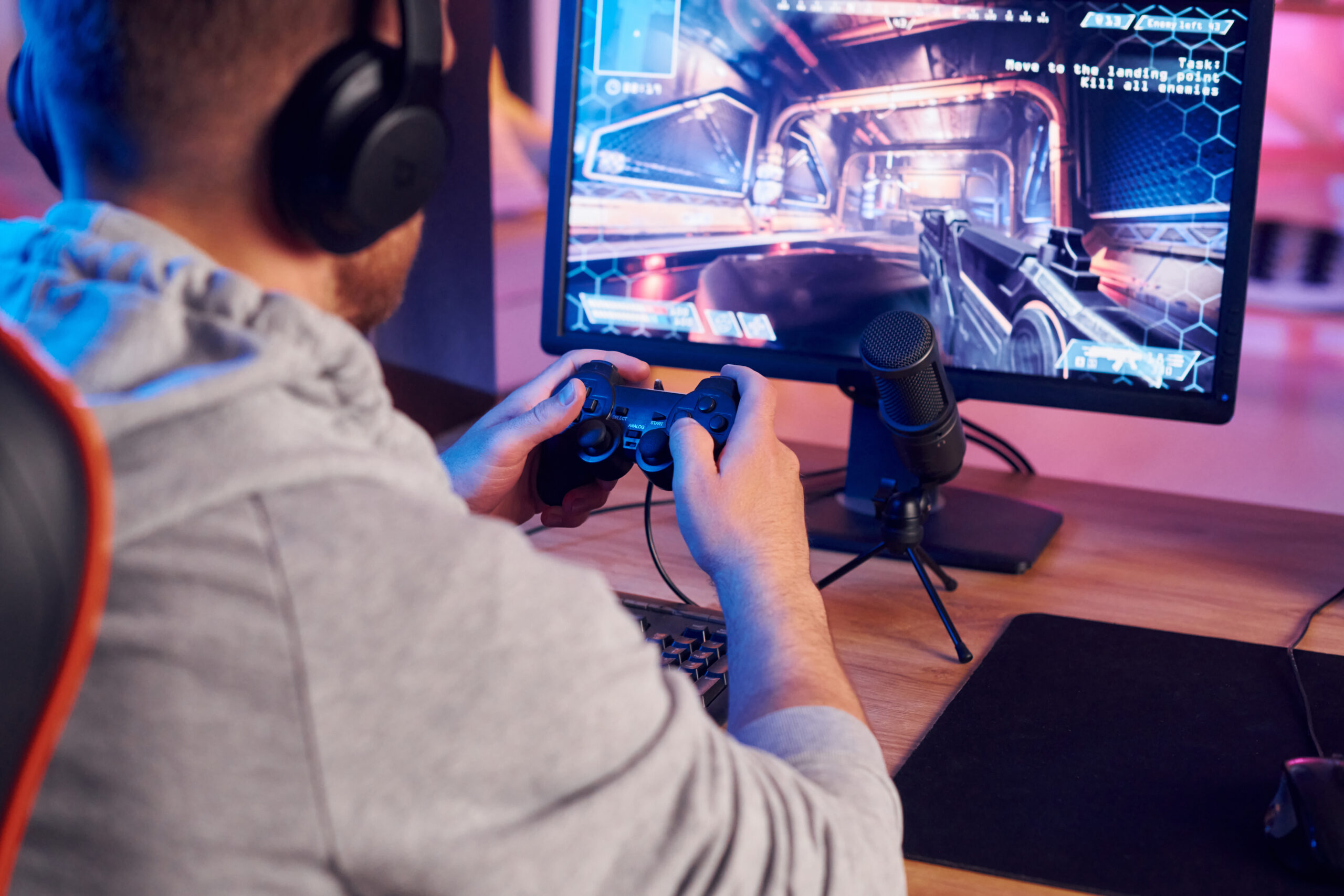In recent years, video games have made up an astronomical part of the entertainment industry. An Insider Intelligence survey found that almost 55% of the US population in 2022 were digital gamers, and globally, people have estimated that over 3 billion people actively play some sort of video/digital game. Due to this current boom in popularity, many studies have arisen to investigate the various cognitive effects of gaming to investigate past claims of their being harmful for cognitive function.
Video games today are vastly popular among the Millennial and Gen Z groups.
Image Source: Alistair Berg
Common Cognitive Categories Evaluated
Many studies evaluated similar facets of cognitive function when testing online gamers versus non-gamers. Cognitive function, is your brain’s ability to complete complex problems and execute functions such as multitasking and memory. Of the categories of cognitive function of focus, the first is fluid intelligence: the ability to think fluidly and execute dynamic problem solving. The second is attention, which assess the ability to focus on new stimulus and respond to it; this can be evaluated by testing reaction time, accuracy, and response-inhibition of a click/button-based test. The last category is working memory: the brain’s ability to keep track of necessary/unnecessary information. These three categories were commonly evaluated when studying cognitive function between people who regularly play games and those who don’t.
Results of Cognitive Studies
In one study, Colzato et al. conducted different tests to test cognitive function of VGPs (video game players) and NVGPs (non-video game players). Because VGPs and NVGPs had no significant difference in age, gender, or estimated IQ, the participants’ experience with video games could explain differences in performance. A task-switching test evaluated working memory and attention, and the authors found that VGPs switched tasks faster and hesitated less when changing activities. The authors could then tentatively conclude that VGPs have increased cognitive flexibility/control.
Colzato et al. also had their participants complete three different tests in a different study. The first was the stop-signal task, which was used to evaluate response inhibition. Secondly, the N-back test was used to measure changes in working memory. The third test was the fluid intelligence test, also called the SPM, which analyzed a person’s capability to create intuitive relationships via reasoning. Both VGPs and NVGPs could stop tasks with equal efficiency and had similar fluid intelligence based on the first and third tests. On the other hand, according to the results of the N-back test, the authors concluded that VGPs were quicker and more precise in revising their working memory. In other words, they could discard unnecessary information better than those who did not play video games.
Even though gamers did not necessarily do better with problem solving or reactions, video games can help people improve their ability to multi-task and sort information. Even though video games often have a bad image in the media, studies have indicated they could be a cognitively beneficial activity.
Featured Image: © standret / Adobe Stock










